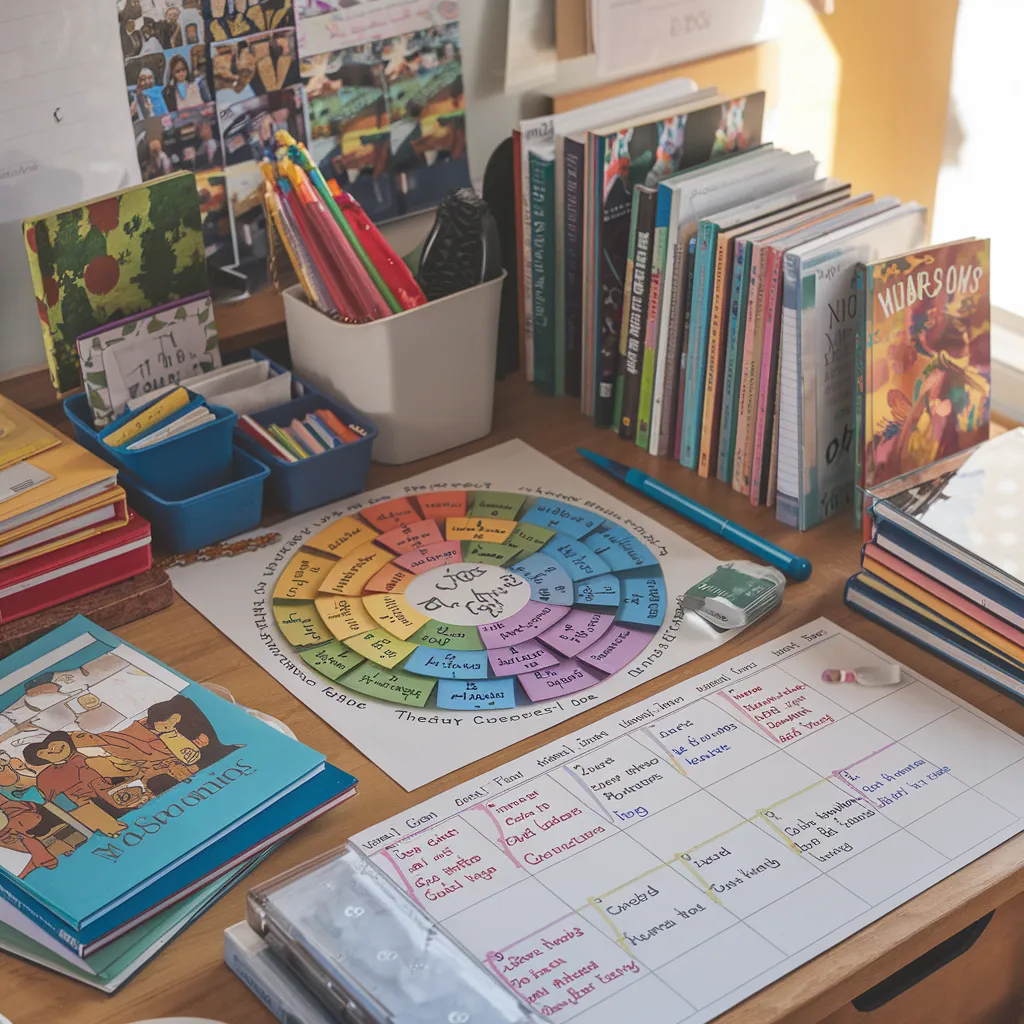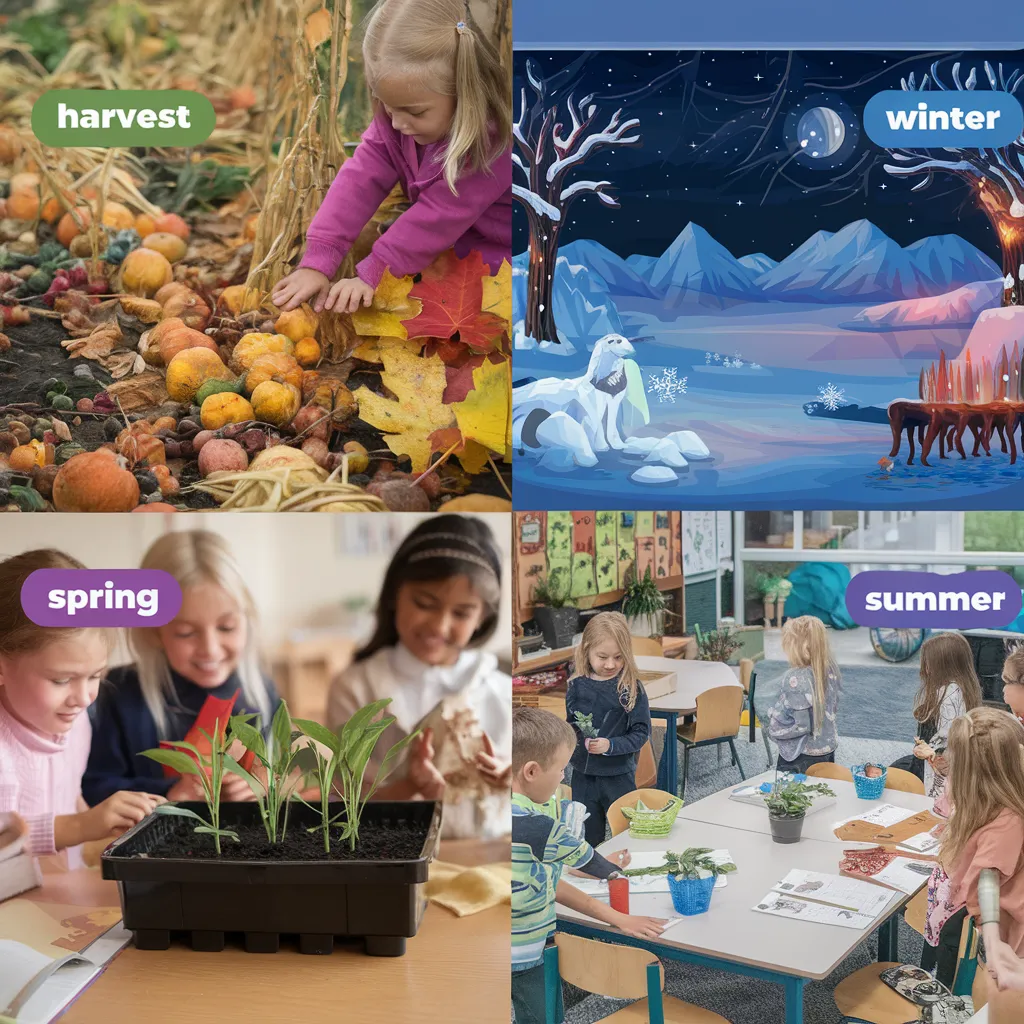Creating engaging classroom experiences begins with selecting the right weekly lesson plan themes. These thematic frameworks provide structure, coherence, and excitement to your teaching, transforming isolated lessons into connected learning journeys. Weekly lesson plan themes allow teachers to weave multiple subjects around a central concept, making learning more meaningful for students. They also simplify planning by providing a clear focus for activities and resources. Whether you teach preschoolers or high schoolers, thoughtfully chosen themes can revitalize your classroom, inspire curiosity, and create cohesive learning experiences that students eagerly anticipate.

The Educational Value of Weekly Lesson Plan Themes
Weekly lesson plan themes offer substantial educational benefits beyond simply organizing your teaching calendar:
Enhanced Learning Connections
- Cross-curricular integration: Weekly lesson plan themes naturally bridge different subject areas
- Contextual learning: Concepts are taught within meaningful frameworks rather than in isolation
- Deeper comprehension: Information connected to themes is better understood and retained
- Knowledge transfer: Students apply learning across different contexts more effectively
Increased Student Engagement
- Natural curiosity: Interesting themes spark questions and investigation
- Personalized learning: Diverse themes eventually connect with every student’s interests
- Anticipatory excitement: Students look forward to discovering new weekly themes
- Emotional investment: Engaging themes create stronger emotional connections to learning
Streamlined Teacher Planning
- Focused resource gathering: Themes provide clear direction for material selection
- Efficient organization: Related activities cluster naturally around central concepts
- Simplified differentiation: Thematic approaches offer multiple entry points for diverse learners
- Meaningful assessment opportunities: Themes create authentic contexts for skills demonstration
Seasonal Weekly Lesson Plan Themes
Aligning weekly lesson plan themes with seasons creates natural connections to students’ experiences:
Fall Weekly Lesson Plan Themes

- Harvest and Agriculture
- Study plant life cycles through fall crops
- Explore farming tools and technologies
- Calculate harvest yields through practical math
- Research cultural harvest celebrations worldwide
- Animal Adaptations for Autumn
- Investigate migration patterns with mapping activities
- Study hibernation preparation behaviors
- Compare and contrast different survival strategies
- Create models of animal homes and habitats
- Weather Transitions
- Track and graph temperature changes
- Experiment with wind and air pressure
- Study the science of changing leaf colors
- Write weather observation journals
Winter Weekly Lesson Plan Themes
- Light and Celebrations
- Explore cultural festivals of light
- Conduct simple experiments with reflection and refraction
- Study seasonal changes in daylight hours
- Create light-themed art and writing projects
- Polar Regions
- Compare Arctic and Antarctic ecosystems
- Study adaptations of polar animals
- Research indigenous polar cultures
- Experiment with states of matter through ice activities
- Winter Sports and Movement
- Calculate speeds, distances, and angles in winter sports
- Study friction and momentum through sledding experiments
- Explore the history and geography of the Winter Olympics
- Design winter safety equipment using simple materials
Academic Weekly Lesson Plan Themes
Some weekly lesson plan themes align perfectly with core curriculum areas:
STEM Weekly Lesson Plan Themes
- Simple Machines
- Identify simple machines in everyday objects
- Design and build working models
- Calculate mechanical advantage through experiments
- Research how simple machines changed history
- Water Cycle Exploration
- Create working water cycle models
- Measure precipitation and evaporation rates
- Study watershed geography in your region
- Investigate water conservation technologies
- Coding and Algorithms
- Practice sequence thinking through unplugged activities
- Solve problems through algorithmic thinking
- Design simple programs with age-appropriate tools
- Connect coding concepts to everyday processes
Literacy-Focused Weekly Lesson Plan Themes
- Author Studies
- Analyze an author’s recurring themes and style
- Research biographical influences on their writing
- Create original works inspired by the author
- Compare multiple works by the same creator
- Genre Exploration
- Identify key characteristics of a specific genre
- Compare examples across different media (books, film, etc.)
- Evaluate what makes effective examples of the genre
- Create original works following genre conventions
- Cultural Folktales
- Compare similar stories across different cultures
- Identify common elements and unique variations
- Study geographical and historical contexts of stories
- Create modern adaptations of traditional tales

Creating Weekly Lesson Plan Themes Based on Student Interests
The most engaging weekly lesson plan themes often emerge from student curiosity:
Interest-Driven Weekly Lesson Plan Themes
- Start with Questions
- Collect student questions on engaging topics
- Group similar inquiries to identify theme potential
- Develop investigation paths for different subject areas
- Create culminating projects that answer initial questions
- Build on Popular Media
- Identify educational connections in current popular culture
- Extract meaningful learning opportunities from student interests
- Use familiar contexts to introduce new concepts
- Create academic challenges within engaging frameworks
- Community Connections
- Explore local history and geography
- Interview community experts and professionals
- Investigate local issues and brainstorm solutions
- Create service projects related to community needs
Implementing Student-Led Weekly Lesson Plan Themes

- Collaborative Theme Selection
- Hold class votes on potential upcoming themes
- Create a suggestion system for future themes
- Rotate student theme planning committees
- Balance student choices with curriculum requirements
- Flexible Implementation Strategies
- Maintain core learning objectives within varied themes
- Create modular activities that adapt to different topics
- Develop assessment templates that work across themes
- Build in reflection time to evaluate theme effectiveness
Planning Effective Weekly Lesson Plan Themes for Different Age Groups
Weekly lesson plan themes should evolve to match students’ developmental stages:
Early Childhood Weekly Lesson Plan Themes
- Concrete, Observable Concepts
- « Things That Move » with simple physics exploration
- « Growing Things » with plant and animal life cycles
- « Colors All Around » with art and natural science
- « Building and Creating » with simple engineering concepts
- Sensory-Rich Experiences
- Incorporate texture, sound, smell, and movement
- Provide hands-on manipulation of theme-related materials
- Create immersive classroom environments
- Include plenty of play-based learning opportunities
Upper Elementary Weekly Lesson Plan Themes
- Increasing Complexity and Depth
- « Ancient Civilizations » with cross-curricular connections
- « Ecosystems and Interdependence » with cause-effect relationships
- « Entrepreneurship and Economics » with practical applications
- « Forces and Motion » with scientific investigation
- Collaborative Project Opportunities
- Design themes that encourage group work
- Build in presentation and communication components
- Include digital creation tools when appropriate
- Balance individual accountability with team goals
Conclusion
Weekly lesson plan themes transform teaching from a collection of disconnected lessons into coherent, engaging learning journeys. Whether you select seasonal topics, curriculum-aligned concepts, or student-inspired ideas, thoughtfully implemented weekly lesson plan themes enhance learning connections, boost student engagement, and streamline your planning process. Begin by selecting one compelling theme that aligns with your upcoming curriculum goals, gather diverse resources, and design activities that connect multiple subject areas. As you become more comfortable with thematic teaching, experiment with different theme durations, student involvement in theme selection, and creative culminating projects. Remember that the most successful weekly lesson plan themes balance structure with flexibility, allowing for both planned activities and spontaneous exploration of student questions. With practice and reflection, your thematic approach will create classroom experiences that students remember long after the school year ends.
25 Transformative Educational Themes for Preschool That Spark Curiosity
Frequently Asked Questions
How long should I spend on each weekly lesson plan theme?
Despite the name, weekly lesson plan themes don’t necessarily last exactly one week. The ideal duration depends on the theme’s complexity, curriculum requirements, and student engagement levels. Simple themes with focused concepts might truly last one week, while more complex topics could extend to two or three weeks. Monitor student interest and learning progression to determine when to conclude a theme—look for signals like completed inquiry cycles, mastery of key concepts, or decreasing engagement. Always plan flexible transition points that allow you to extend engaging themes or abbreviate those that don’t resonate as expected.
How do I connect weekly lesson plan themes to required curriculum standards?
Start by identifying your upcoming standards and learning objectives across subject areas, then select themes that naturally incorporate these requirements. Create a planning matrix that maps each standard to specific theme-based activities, ensuring comprehensive coverage. When choosing themes, prioritize those that address multiple standards simultaneously. Remember that some standards may need supplementary instruction outside the theme framework. The key is viewing themes as vehicles for standards delivery rather than separate entities—your weekly lesson plan themes should enhance required learning, not compete with it.
How can I gather resources for weekly lesson plan themes efficiently?
Build a system for organizing thematic resources to avoid starting from scratch each time. Create digital folders or physical files for themes you might repeat in future years. Develop a network of colleagues for resource sharing and collaborative planning around common themes. Utilize curated teacher websites and district-provided resources, and build relationships with librarians who can help gather topic-specific materials. Consider creating a flexible request system for families to contribute theme-related items. For recurring seasonal themes, store core materials together with inventory lists to streamline future planning.
How do I assess student learning within weekly lesson plan themes?
Effective assessment in weekly lesson plan themes balances formative and summative approaches while measuring both content knowledge and skill development. Design assessments that allow students to demonstrate understanding through multiple modalities—writing, speaking, creating, and problem-solving within the thematic context. Create rubrics that evaluate both theme-specific content and transferable skills. Use beginning-of-theme preassessments to measure growth, daily check-ins to guide instruction, and end-of-theme projects that require synthesis of key concepts. The most powerful thematic assessments often involve students applying their learning to novel situations or authentic problems.
How can I differentiate instruction within weekly lesson plan themes?
Thematic teaching naturally lends itself to differentiation through multiple entry points and varied engagement opportunities. Provide content at different complexity levels while maintaining the same thematic concepts. Create tiered activities that allow students to work at appropriate challenge levels. Develop choice boards that offer different ways to explore and demonstrate understanding of theme concepts. For assessment, establish clear learning goals while allowing flexibility in how students demonstrate their knowledge. The rich context of weekly lesson plan themes provides natural opportunities to address diverse learning needs while keeping the classroom community united around shared experiences.

Ping : 40 Engaging Holiday-Themed Worksheets That Make Learning Festive - smartkidsprintable